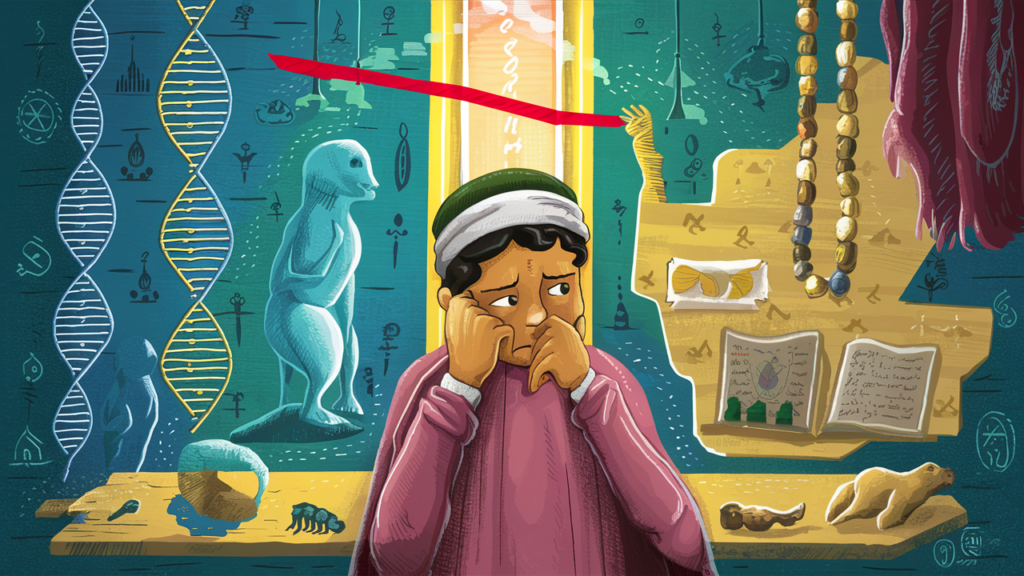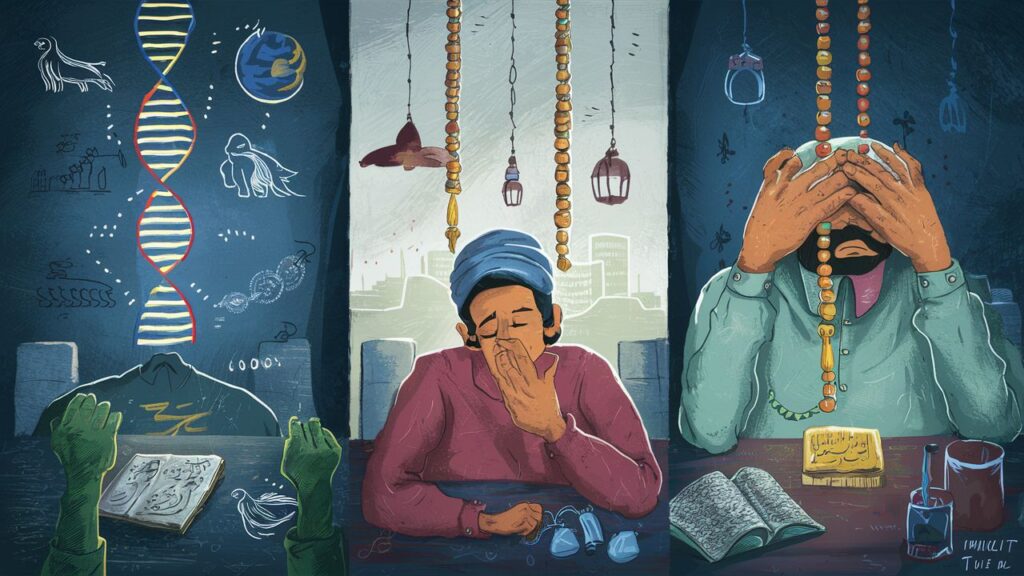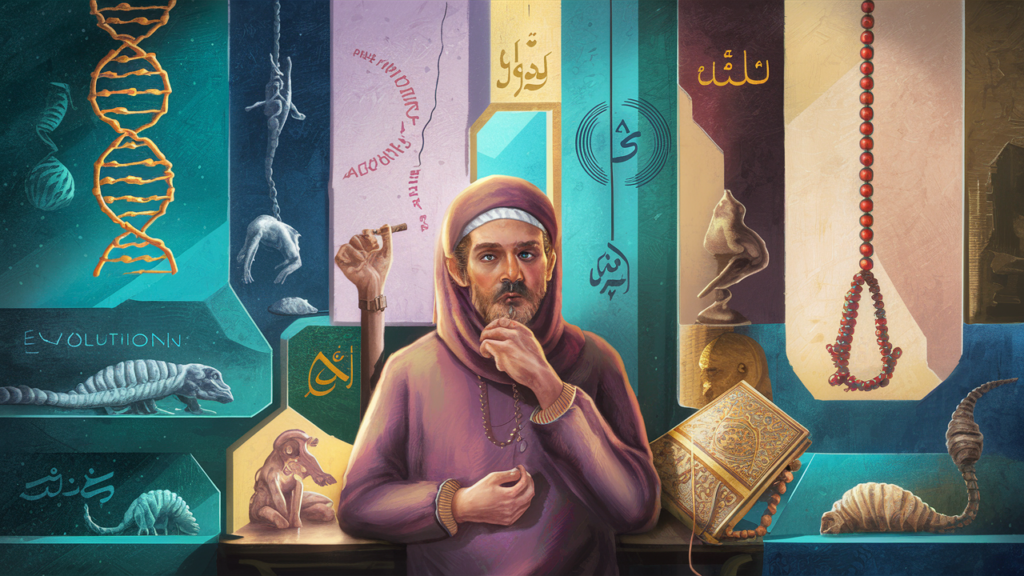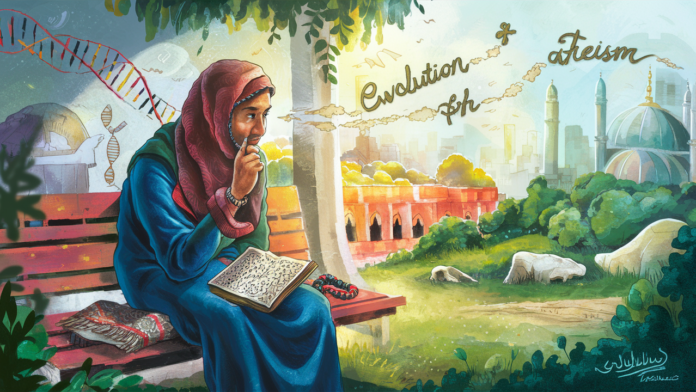As the world hurtles forward in the pursuit of knowledge, the intersection of science, faith, and reason becomes increasingly complex. For Muslims, grappling with the concept of evolution and its compatibility with Islamic beliefs can be both fascinating and challenging. In this comprehensive guide, we’ll embark on a journey through the realms of science, metaphysics, and hermeneutics to explore the nuances of evolution and its impact on our faith.
1. The Science of Evolution

Let’s start by demystifying the science behind evolution. Imagine a grand tapestry woven over eons—a tapestry that tells the story of life on Earth. Evolution, like an intricate thread, weaves through this fabric, connecting species, shaping biodiversity, and revealing the remarkable journey of existence.
The Misconception: Humans Descended from Chimps
Before we delve deeper, let’s debunk a common misconception. Contrary to popular belief, humans did not directly descend from chimpanzees. Instead, we share a common ancestor with them. Picture a family tree: at one point, our lineage diverged, leading to distinct paths—one toward Homo sapiens (us) and the other toward our chimp cousins. So, rather than being chimp descendants, we’re more like genealogical cousins.
Evidence for Evolution
- The Fossil Record: Critics often point to gaps in the fossil record as evidence against evolution. True, there are missing links, but scientists have identified numerous intermediate species that bridge the gaps. These fossils whisper tales of ancient life, revealing gradual changes over time.
- Homology: Ever noticed how the bones in a human arm resemble those in a bat’s wing? That’s homology—the similarity in structures across different species. It’s as if nature reused the blueprint, tweaking it for various purposes.
- Genetics: Our DNA holds secrets. By comparing genetic sequences, scientists trace evolutionary relationships. The shared genetic code between species speaks volumes about our interconnectedness.
2. Metaphysics: The Divine Design

Now, let’s pivot to metaphysics—the realm where faith and reason dance. Islam celebrates the idea of divine design. Imagine God as the Master Architect, crafting life with precision. The Quran hints at creation’s intricacy, urging us to ponder the signs in the universe.
The Claim of Design
Muslim scholars propose that life’s complexity reflects divine craftsmanship. Biological systems—be they the human eye or the intricate ecosystem of a rainforest—bear the fingerprints of a Creator. The claim? Life emerges through knowledge, will, power, and wisdom, transcending mere scientific methodology.
3. Hermeneutics: Interpreting Sacred Texts

Finally, we arrive at hermeneutics—the art of interpreting sacred texts. The Quran, rich in allegory and metaphor, invites contemplation. When it comes to evolution, interpretations vary:
- Literalists: Some insist on a literal reading, rejecting evolution outright. But this stance overlooks the Quran’s poetic layers.
- Harmonizers: Others harmonize science and faith. They see evolution as God’s gradual unfolding—a symphony of creation.
- Analysts: A third group analyzes context, seeking deeper meanings. Perhaps the Quran hints at evolution metaphorically, urging us to explore the divine plan.
In Conclusion
Evolution need not clash with faith. It’s a lens through which we glimpse God’s artistry. As Muslims, let’s embrace curiosity, engage in dialogue, and celebrate the wonder of existence. Remember, the pursuit of knowledge is a sacred journey—one that unites science and spirituality.
So, my fellow travelers, let’s unravel the threads of evolution, weaving them into the fabric of our faith.


